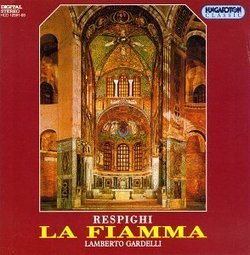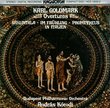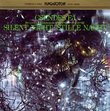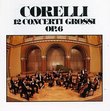| All Artists: Sandor Solyom-Nagy, József Gregor, Kolos Kovats, Ilona Tokody, Lamberto Gardelli, Katalin Pitti, Klara Takacs, Tamara Takacs, Zsuzsa Barlay, Hungarian State Symphony Orchestra Title: Respighi: La Fiamma Members Wishing: 0 Total Copies: 0 Label: Hungaroton Release Date: 12/15/1995 Album Type: Import Genre: Classical Style: Opera & Classical Vocal Number of Discs: 3 SwapaCD Credits: 3 UPCs: 750582158728, 5991811259129, 599181125912 |
Search - Sandor Solyom-Nagy, József Gregor, Kolos Kovats :: Respighi: La Fiamma
 | Sandor Solyom-Nagy, József Gregor, Kolos Kovats Respighi: La Fiamma Genre: Classical
|
Larger Image |
CD DetailsSimilar CDs |
CD ReviewsRespighi, La Fiamma David C. Patrick | Joplin MO, USA | 02/21/2000 (5 out of 5 stars) "This opera, written by Respighi late in his career, has a score with marvellous atmospheric qualities. The work, set in 7th Century Ravenna, combines fascinating Byzantine tone color with good 20th Century Italian lyricism. The singing qualities of the cast are first rate, as is the orhestra. This is a prize find in my considerable collection of operatic CDs." Witchy masterpiece.... Eric D. Anderson | South Bend, IN United States | 06/26/2004 (5 out of 5 stars) ""La fiamma" is one of the greatest Italian operas of the 20th century. This is a master at the top of his game, and he drives his tale of love and witchcraft forward with a score that is so mysterious, atmospheric, and tinged with sulfur, that you can almost smell it.Respighi was enamoured with medieval and renaissance music, and in "La fiamma" he purposely set his story in Byzantine Ravenna inorder to have a chance to infuse his score with these elements. At times, the musical line is austere--with lots of unison playing. Yet at othertimes, the orchestra explodes with Straussian brilliance.The heroine, Silvana while trying to shelter an accused witch, hears rumor that her mother had arranged her marriage to the aged Exarch of Ravenna through witchcraft. Later, the Exarch's handome son Donello comes to the court, and Silvana is entranced. In an achingly beautiful aria, she warns her favorite maid Monica to stay away from Donello, who had been flirting with her.One night, alone in her room, Silvana tries to summon Donello using witchcraft. He appears silently from the shadows of the room. I swear that this scene is one of the most chilling and creepy in all opera! Wow!The final act opens with a love duet that must be one of the most beautiful in opera--it reminded me of that in Wagner's "Tristan und Isolde". But the lovers are discovered, and Silvana is accused of witchcraft. Put on trial, she weakens while repeatedly claiming that it was love that brought Donello to her, not witchcraft, and when it is demanded that she repeat a denunciation of the devil and all his works, she seems unable to do so. She's condemned to burn at the stake.It seems that the opera is set up to cause the viewer to wonder, was Silvana a witch? Or did all take place through the power of her love. What is "The Flame" of the title? Is it inherited supernatural powers, or is it love?We are fortunate that Respighi leads us through this masterful, emotional score while posing these perhaps unanswerable questions.Sadly, this set is unreasonably priced. Despite the fact that the opera is only a little two hours, the label decided to issue the opera on three discs. Yet if you can part with the cash, this is the set to have. Ilona Tokody much outshines Nelly Miricioiu in the more recent set from the Teatro dell Opera in Rome. Plus, this set comes with a full translation, while the Miricioiu set only has the Italian." Lots of high points Leo J. Wolansky | 04/28/2000 (4 out of 5 stars) "Tons of atmosphere, especially the first act prelude which is one of the most effectively dramatic preludes in all of opera. The heroine discovers that her mother was a witch, and in another HIGHLY effective scene conjures her stepson to her bed (or does he come of his own free will?). Well-played and sung (especially Tokody with her dark red wine voice and Takacs with her truly formidable mezzo) but the vocal lines lack direction much of the time, and one wishes for a big love duet or confrontation between Tokody and Takacs. Lots of high points in the work, lots of music that Respighi fans will enjoy, but as a piece of theater, the characters' motivations need to be more clearly defined and the ending fizzles. This is only a quibble because one senses much greater dramatic potentials that the libretto misses."
|

 Track Listings (6) - Disc #1
Track Listings (6) - Disc #1


